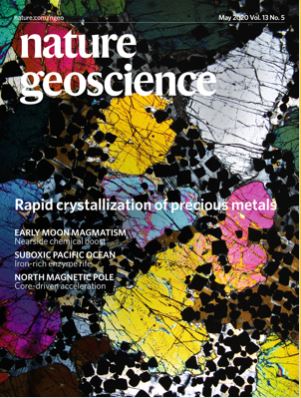Transparency on greenhouse gas emissions from mining to enable climate change mitigation
The climate change impacts of mining are often not fully accounted for, although the environmental impact of mineral extraction more generally is widely studied. Copper mining can serve as a case study to analyse the measurable pathways by which mining contributes to climate change through direct and indirect greenhouse gas emissions. For example, mining, processing and transportation require fuel and electricity, and the decomposition of carbonate minerals, employed to reduce environmental impacts, also releases carbon dioxide. Overall, we estimate that greenhouse gas emissions associated with primary mineral and metal production was equivalent to approximately 10% of the total global energy-related greenhouse gas emissions in 2018. For copper mining, fuel consumption increased by 130% and electricity consumption increased by 32% per unit of mined copper in Chile from 2001 to 2017, largely due to decreasing ore grade. This trend of increasing energy demand to produce the same quantity of some metals compounds the problems of increased metal demand due to the pressures of new technologies and increasing population. For green technologies to be implemented effectively, it is necessary that the mining industry and regulators accurately and transparently account for greenhouse gas emissions to implement mitigation strategies.
Language: English
Publisher: Nature Publishing Group
Region: Global
Type: Article
CITATION
Azadi, M., Northey, S., Ali, S., and Edraki, M. (2020). Transparency on greenhouse gas emissions from mining to enable climate change mitigation. Nature Geoscience 13 (2) 100-104.

